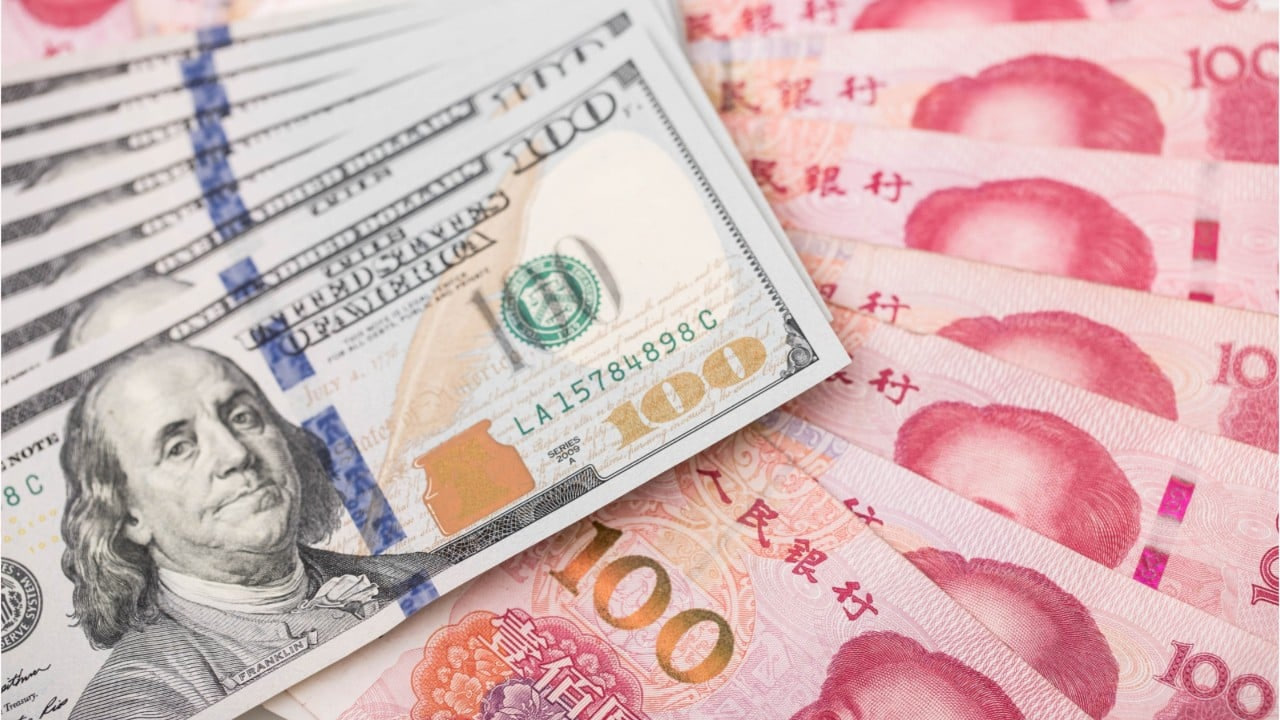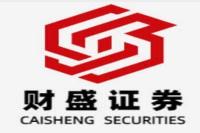Inside the Insider Trading Investigation: Unraveling the Truth Behind the GuoTai JunAn and Haitong Securities Case
Meta Description: Deep dive into the insider trading investigation involving GuoTai JunAn and Haitong Securities, uncovering the details, implications, and lessons learned from this high-profile case. Explore the roles of key individuals, regulatory responses, and future implications for market integrity. #InsiderTrading #GuoTaiJunAn #HaitongSecurities #FinancialRegulation #MarketIntegrity
Whoa! The recent insider trading allegations swirling around GuoTai JunAn and Haitong Securities have sent shockwaves through the financial world. This isn't your typical Wall Street drama; this is a complex web of transactions, accusations, and investigations that demands a closer look. Forget the sensationalist headlines – we’re delving into the nitty-gritty, providing you with a comprehensive analysis grounded in facts and informed perspectives. We're not just regurgitating press releases; we're offering insights gleaned from years of experience covering similar cases, connecting the dots to paint a clearer picture of what really happened. This isn't just about numbers on a spreadsheet; it's about the people involved, the decisions they made, and the repercussions they faced. We’ll dissect the regulatory responses, explore the potential motivations behind the alleged actions, and ultimately, analyze the lessons learned for investors, companies, and regulatory bodies alike. Get ready to uncover the truth behind this high-stakes financial thriller. Prepare for a deep dive into the complexities of insider trading, the intricacies of corporate governance and the far-reaching consequences of actions taken in the shadow of the law. You'll gain a thorough understanding of the case, leaving you better equipped to navigate the sometimes murky waters of the financial markets. This isn't just about the headlines; it's about understanding the systemic issues at play. Let's roll up our sleeves and get to the bottom of this.
Key Players and Their Actions
The recent investigations into insider trading at GuoTai JunAn and Haitong Securities centered around eleven individuals allegedly trading the companies' stocks while possessing material non-public information (MNPI). This isn't some fly-by-night operation; these individuals held significant positions within both firms. The spotlight, understandably, fell on two key figures: Han Zhi Da, Vice President of GuoTai JunAn, and Zhao Hong, the company's Chief Auditor.
Both Han and Zhao, according to the official announcements, sold significant quantities of GuoTai JunAn shares during the relevant period. Crucially, their sales occurred before they assumed their current high-level positions. This timing is absolutely critical; it forms the crux of the investigation. Were these trades purely coincidental, driven by personal financial needs as they claimed? Or was there more to the story?
The investigations also included other individuals, including family members of employees. This aspect highlights the potential for even indirect access to MNPI influencing trading decisions. The interconnectedness of the individuals involved adds another layer of complexity to the investigation.
It's important to note that, at this stage, these are allegations. The individuals involved have issued statements denying any wrongdoing, claiming their trades were unrelated to the pending merger. However, the sheer number of individuals involved raises serious questions about the potential for a wider network of knowledge about the pending deal. The investigation will need to determine whether a culture of lax oversight or deliberate disregard for regulatory protocols existed.
Furthermore, the involvement of the lawyer from Gao Weishen Law Firm, a reputable international firm, highlights how even individuals outside the direct organizational structure could have access to material non-public information. It adds another dimension to the case that needs to be carefully scrutinized.
The GuoTai JunAn and Haitong Securities Merger: A Timeline of Events
Understanding the context of this insider trading investigation requires a close examination of the timeline surrounding the merger between GuoTai JunAn and Haitong Securities. The announcement of the merger itself would have been a catalyst for substantial market movement. The timeframe mentioned in the official announcement, from March 5th, 2024, to November 21st, 2024, encompasses the period leading up to and including the public disclosure of the merger plans. This period is crucial because it defines when MNPI was considered to be in the possession of those involved.
The precise dates of the trades made by Han and Zhao are critical, especially in relation to when they officially assumed their senior roles at GuoTai JunAn and whether their knowledge of the pending merger predated these promotions. This is where meticulous forensic accounting and regulatory scrutiny will be paramount. Every transaction, every email, and every communication needs to be thoroughly examined to piece together the puzzle.
Regulatory Response and Future Implications
The swift and public response by both GuoTai JunAn and Haitong Securities to the allegations demonstrates a commitment (at least publicly) to transparency and compliance. These types of self-initiated investigations often accompany more extensive regulatory probes by the China Securities Regulatory Commission (CSRC). The CSRC's role will be pivotal in determining whether the existing regulatory framework was sufficient to prevent this alleged insider trading and whether any improvements are needed.
This case has significant implications for the overall integrity of the Chinese capital markets. The involvement of senior executives raises concerns about corporate governance and the effectiveness of internal controls. A robust and transparent investigation is crucial to restoring investor confidence. Any leniency or perceived lack of accountability in handling this case could severely damage the credibility of the market and discourage foreign investment.
The outcome of this case will set a precedent. Will it send a strong message to deter future violations, or will it become a cautionary tale of loopholes and inadequate oversight? Time will tell, but the ramifications extend far beyond the individuals directly involved.
Understanding Insider Trading: A Deeper Dive
Insider trading, in its simplest form, is the illegal trading of a publicly traded company's stock based on material non-public information. This MNPI is information that isn't yet available to the general public but could significantly impact the stock's price if it were known. This could range from a pending merger or acquisition, to a major product launch, or even significant financial losses. The key element is the materiality of the information and the unfair advantage it grants to those in possession of it.
The penalties for insider trading can be severe, including hefty fines, imprisonment, and a tarnished professional reputation. It's a serious offense that undermines the fairness and integrity of the capital markets. The regulatory landscape surrounding insider trading is complex and constantly evolving, requiring organizations and individuals to remain vigilant and compliant. Effective internal controls, robust compliance programs, and a culture of ethical conduct are essential in mitigating this risk.
Frequently Asked Questions (FAQ)
Q1: What is the current status of the investigation?
A1: The investigation is ongoing. Both companies have completed internal inquiries, but the CSRC's investigation is still underway.
Q2: What are the potential penalties for those found guilty of insider trading?
A2: Penalties can be substantial and include significant fines, imprisonment, and reputational damage. The exact penalties will depend on the severity of the violation and the specifics of the case.
Q3: How can companies prevent insider trading within their organizations?
A3: Implementing robust compliance programs, establishing clear ethical guidelines, and providing regular training to employees are crucial. Strong internal controls and oversight also play a significant role.
Q4: What is the impact of this case on investor confidence?
A4: The case has undoubtedly raised concerns about market integrity. A thorough and transparent investigation is necessary to restore investor confidence and maintain the stability of the market.
Q5: What are the implications for corporate governance and regulatory oversight?
A5: The case highlights the importance of robust corporate governance practices and effective regulatory oversight to ensure market fairness. It may lead to stricter regulations and increased scrutiny of corporate conduct.
Q6: What lessons can be learned from this case?
A6: The case underscores the need for strict adherence to ethical principles, robust internal controls, and diligent regulatory oversight. Transparency and accountability are paramount in maintaining the integrity of the financial markets.
Conclusion
The insider trading investigation surrounding GuoTai JunAn and Haitong Securities is a significant event with far-reaching consequences. While the specifics of the case are still unfolding, it serves as a stark reminder of the importance of ethical conduct, robust internal controls, and effective regulatory oversight in the financial industry. The outcome of this investigation will have a lasting impact on market confidence and could reshape regulations and corporate governance practices in China. The story is far from over, and we will continue to monitor this situation closely. Stay tuned for further updates.



